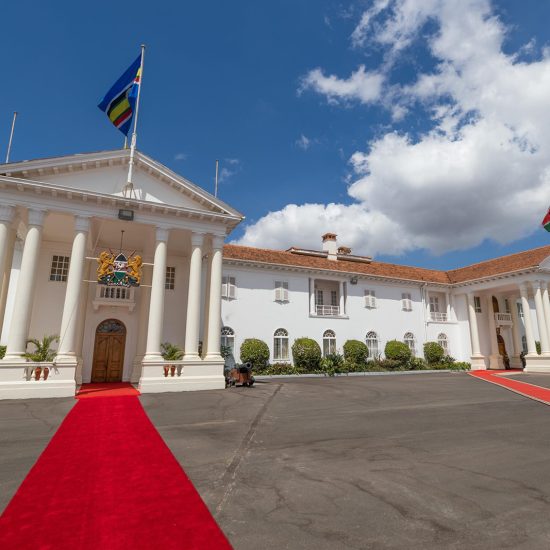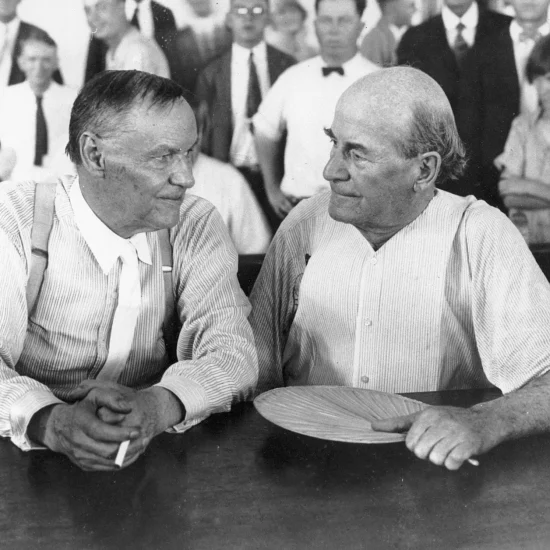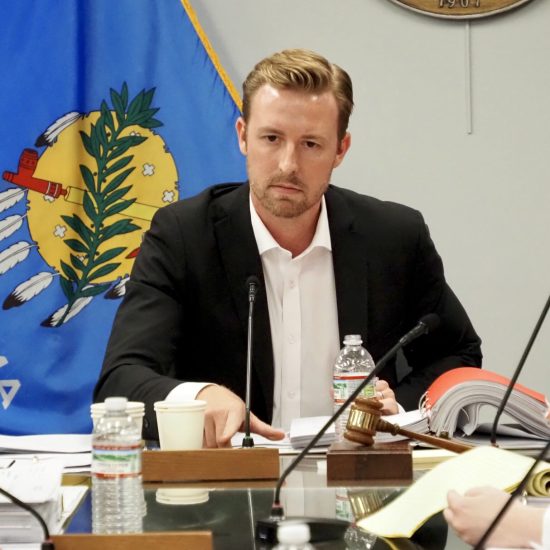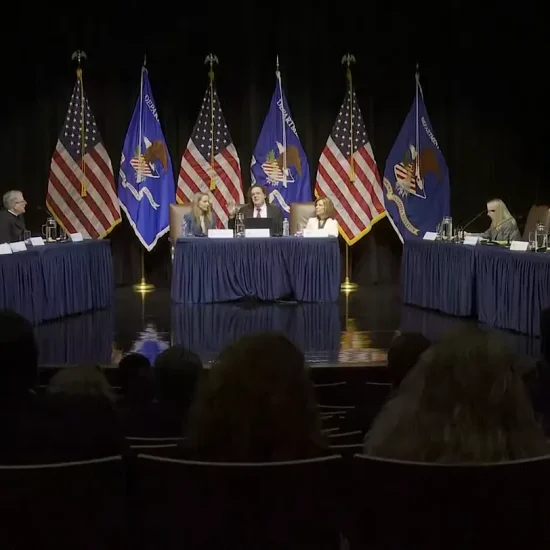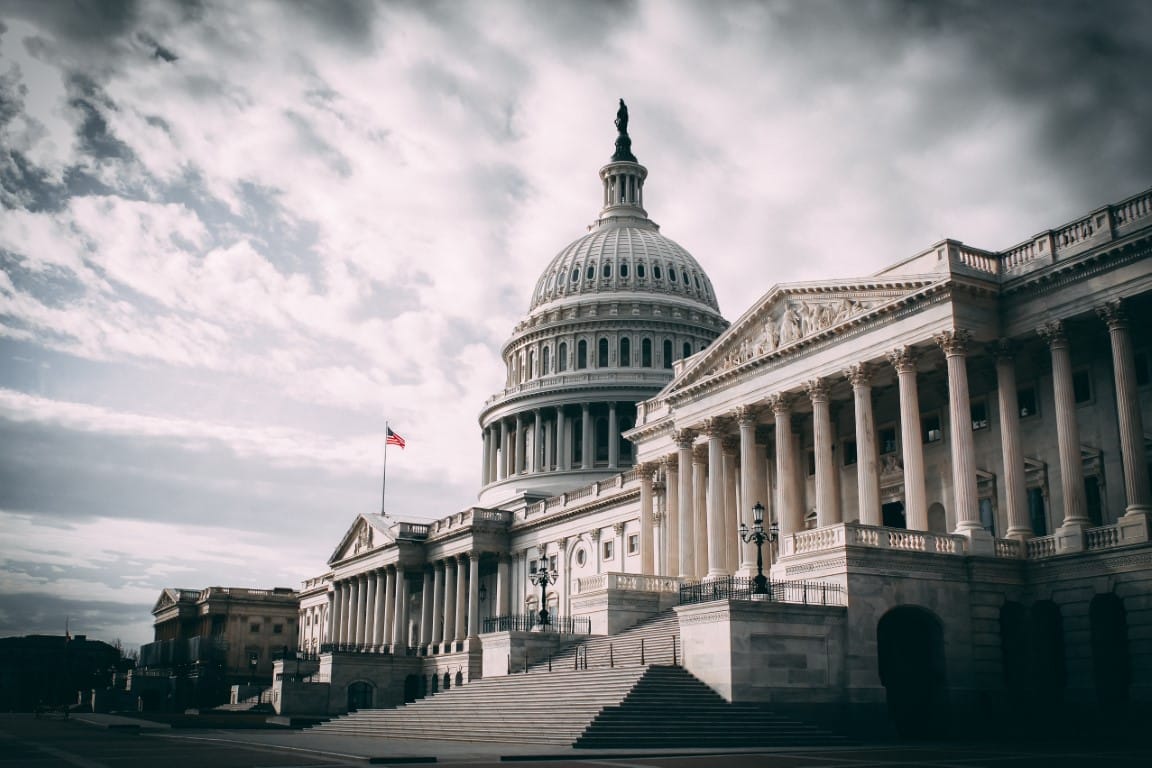
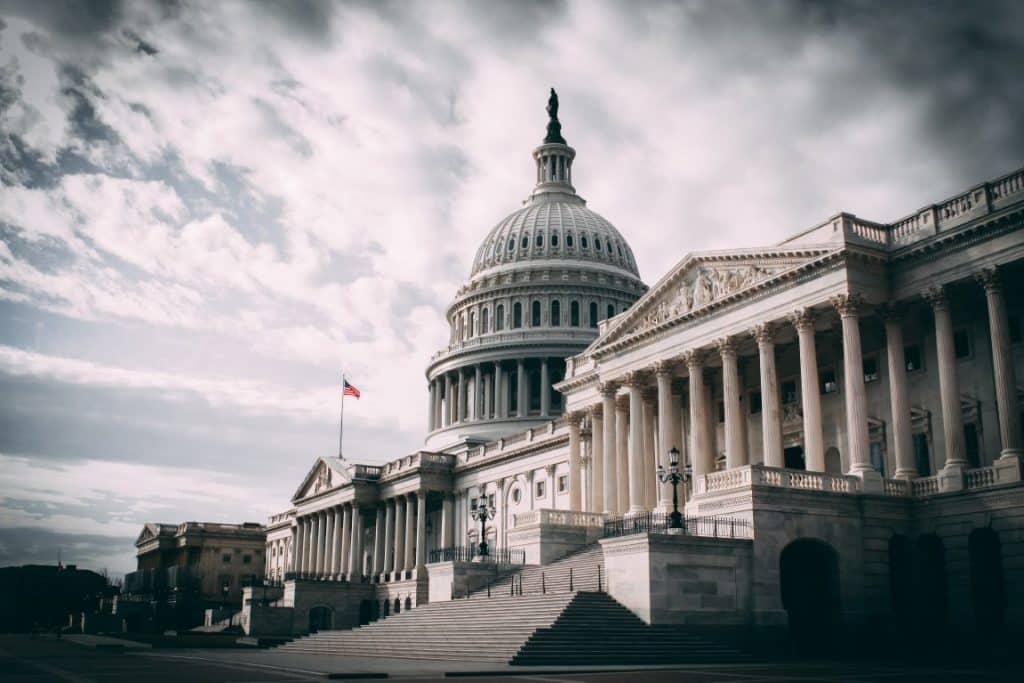
Photo by Harold Mendoza on Unsplash
When we first began getting dire warnings about the coronavirus in the United States, I called a doctor friend of mine. Concerned about reports that hospitals would be overwhelmed, I wanted to know the thinking of my friend, who is well-known for her medical expertise, compassion and humility. She said, “In more than 20 years of practicing medicine, I have never said ‘I don’t know’ more often than in the past few weeks.”
More recently, people have asked me for my professional opinion — not about the virus, of course, but about the massive federal relief legislation and how it might affect churches. Amid a rapidly changing picture, we are examining the legislation and guidance as it becomes available. What is BJC’s religious liberty perspective on the federal response? We offer these preliminary reflections, not to encourage or discourage churches considering whether to apply for federal assistance, but to share what we know at this time so that leaders can make more informed decisions in meeting the needs of their organizations and their employees.
In the midst of this public health crisis, our first duty is to follow directives and guidance from officials in order to help stop the spread of the deadly virus. Those directives have already caused severe distress to our economy, evidenced by record unemployment figures, a volatile stock market and lines of cars at food pantries across the country.
In response to the urgent economic needs of Americans, and in order to keep as many people employed as possible during these days of extreme social distancing, Congress recently passed and President Donald Trump signed new laws providing federal relief not only to businesses but also to nonprofit organizations, presumably including houses of worship.
We know that many Baptists are concerned about the constitutionality and advisability of financial entanglements with the government, and rightly so. Churches in the Baptist tradition affirm church-state separation principles — not primarily because of legal requirements, but because of our theological commitments.
Baptists and other dissenters from religious establishments in the Founding Era fought for the separation of the institutions of religion and government. The benefits of that separation for religious liberty have been undeniable, and we believe the risks of eroding that separation are significant.
BJC guards our religious liberty legacy carefully and zealously. That includes working to uphold constitutional standards that reflect religion’s unique place in our constitutional order. In general, the U.S. Constitution’s No Establishment Clause prohibits the government from funding religious activity. While we support government partnerships with religious entities that are designed with safeguards in place to protect religious liberty, BJC has consistently argued that direct government funding of churches threatens to violate that constitutional rule.
We are learning as much as we can about this massive legislation under difficult and rapidly changing circumstances. We are grateful to partners like the National Council of Nonprofits, who have produced several helpful resources that we would recommend. We recognize the harsh economic circumstances many are facing now and many more will face as the crisis continues.
As Baptists, we don’t and shouldn’t look first to the government for how to overcome most difficulties. Our commitment to the separation of church and state is rooted in our theology and our history, neither of which is changed by government efforts to provide relief in a time of crisis or shifting standards of constitutional law. As every church responds to the crisis, decisions should be made in prayerful consideration, relying on the best information available, consistent with each congregation’s needs and theological commitments.
New Mandates and Opportunities
After the initial COVID-19 stimulus package was enacted on March 4, providing emergency funding primarily for federal agencies to respond to the outbreak, two additional statutes were enacted to provide relief.
Both laws described below apply to nonprofit organizations, and several members of Congress have said they intended churches to be included alongside all other nonprofits. Neither the statutes nor any implementing regulations to date expressly cover or exclude churches. Both churches and other employers should be aware of new requirements they must meet in order to comply and potentially utilize these new federal programs for the benefit of their employees.
Families First Coronavirus Response Act
The Families First Coronavirus Response Act (FFCRA), signed into law on March 18, 2020, extends coverage of the Family Medical Leave Act in two significant ways. Effective from April 1, 2020, through the end of 2020, FFCRA temporarily requires employers engaged in commerce, including those with fewer than 50 employees, to offer paid family and medical leave and paid sick leave for all employees for specified coronavirus-related reasons. These reasons include inability to work or telework because they are experiencing COVID-19 symptoms, caring for someone who is ill with COVID-19, or caring for a child whose school or daycare is closed due to COVID-19. “Engaged in commerce” is a broad standard that could include many churches. Even if a church operates under a more stringent state-law standard or voluntarily provides benefits similar to FMLA, this law could create a new mandate for churches. This new government requirement on employers is intended to be refunded by a payroll tax credit against the amounts due from the employer for paid FMLA and paid sick leave.
Additional information can be found from the Department of Labor. The UCC’s Office of General Counsel prepared an initial analysis and generously shared it online. The UCC memo is here, and a simplified flowchart is here. Due to the particular way that clergy pay is treated under the law, particularly in the Internal Revenue Code, some analysis suggests that a minister’s compensation would not be “qualified wages” under the FFCRA for purposes of the tax credit to churches, though a minister may be able to claim a credit under the self-employment provision of the FFCRA.
Coronavirus Aid, Relief and Economic Security Act (CARES Act)
The most recent piece of legislation, signed on March 27, 2020, is the Coronavirus Aid, Relief, and Economic Security Act (CARES Act). Of particular interest in this $2 trillion relief bill is the $349 billion Paycheck Protection Program, a temporary expansion of a small business loan program to help businesses and nonprofit organizations with 500 or fewer employees (Section 1102). Government-backed loans of up to $10 million are available to cover expenses such as payroll, mortgage payments, rent and utilities for up to two months. These loans will be forgiven, in whole or in part, for employers who keep their employees on the payroll or rehire by June 30 (Section 1106). Payroll expenses must be at least 75% of the loan that is forgiven.
The Small Business Administration has resources, including a sample application form. The Treasury Department has created a short overview of the Paycheck Protection Program as well as this information sheet for borrowers. Of particular importance will be forthcoming guidance and regulations that should clarify how eligible nonprofit organizations will be treated.
Constitutional and Practical Considerations
While there is no precedent for these COVID-19 measures, and there is no certainty about how they will be applied in practice, many of the specific provisions seem to be within constitutional boundaries governing the relationship between church and state. A payroll tax credit to cover a new, quickly implemented government mandate of paid sick leave, for example, does not raise the same concerns as general economic assistance to a church. Likewise, a government-backed loan to a religious organization that is provided on the same terms as loans to other non-religious entities would not likely raise constitutional concerns. Even if they include churches, these programs are likely to be held constitutional and seem unlikely to broadly undercut religious exemptions in other contexts or to create excessive entanglement between government and religion. That said, any ruling on these or other constitutional questions could be many months or even years away.
Loan forgiveness for a church’s ministerial payroll and mortgage expenses perhaps comes closest to the traditional concerns of taxpayers paying for clergy and building houses of worship. In light of recent changes in case law and on the U.S. Supreme Court, as well as the speed with which this legislation was passed, it is not surprising that such issues have not been addressed. Until very recently, the “no aid to churches” principle was firmly ingrained in federal constitutional law and reflected more explicitly in the religious liberty provisions of many state constitutions. After the Supreme Court’s 2017 decision in Trinity Lutheran v. Comer, the constitutional boundary on funding has become less clear. The Court has shifted in personnel and perspective toward a greater acceptance of neutral funding for religious institutions, including churches, at least where there is no intended religious purpose or effect.
With the information available now, we think it unlikely that the federal assistance provided in the Paycheck Protection Program is an unconstitutional establishment of religion. The purpose of the program is to maintain employment during an economic and health crisis in the country, not to advance or prefer religion. Nor are churches preferred in any way over other nonprofits. The assistance is not provided through a government grant program, but rather through bank loans that are forgivable in whole or in part.
Still, depending on its specific terms and application, a general loan forgiveness program may raise unintended practical problems for a church. Qualifying for the payroll tax credit or government-backed loan will inevitably require some form of certification regarding the church’s financial condition and some accounting for the proper use of taxpayer funds.
Other government requirements to ensure accountability may conflict with a church’s mission. For example, the application includes two pages of boilerplate language that applicants agree to, including references to requirements that prohibit religious discrimination in how the applicant provides goods, services and accommodations.
Churches that apply for these programs should not allow this short-term relief to distract from longer-term assessments, planning and necessary reforms, occasioned by the crisis. Voluntary contributions to support each church’s ongoing operations and mission will continue to provide the vast majority of support for houses of worship. In the CARES Act, Congress increased charitable giving incentives for 2020, creating a new deduction of up to $300 for all taxpayers, including those who take the standard deduction rather than itemizing deductions. For the minority of taxpayers who itemize their deductions, they will be able to deduct contributions up to 100% of their adjusted gross income.
We pray that individuals will continue to be as generous as they are able in supporting their houses of worship during this time of public health and economic crisis and that churches, synagogues, mosques and other houses of worship will continue to support their communities in time of need.
Though uncertainties abound, we trust churches to make thoughtful decisions and we hope this information helps them navigate through these challenging days.
Note: Holly Hollman and BJC Executive Director Amanda Tyler discuss this on the April 2, 2020, episode of the the BJC’s Respecting Religion podcast series.

